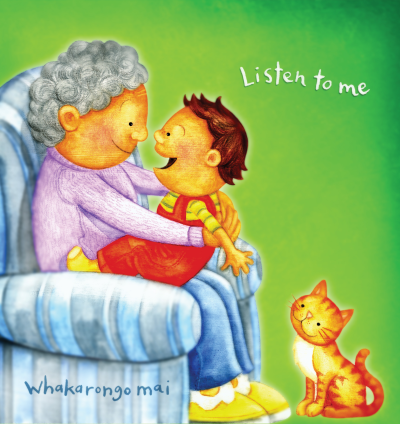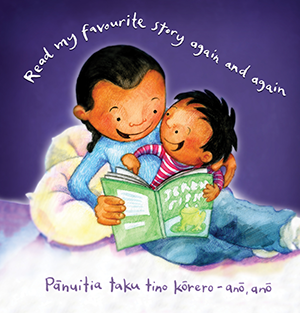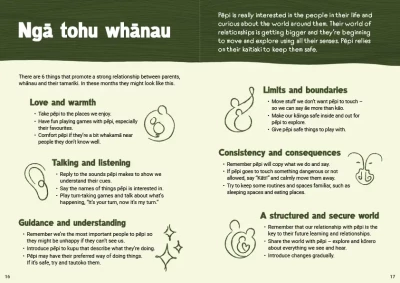
Supporting baby’s communication skills
A child's language goes through a number of stages. Whānau can do many things to help their child with their language development.
Learning to talk goes through a series of developmental stages, just like learning to walk.
Expressive language
Talking is one of the communication skills from the expressive language category. It’s all the sounds a baby makes and the gestures they use to communicate.
Expressive language starts in the early months when they make cooing noises using vowel sounds, before they start blending them with consonants. Then come single words, then two words joined before they move to using sentences in their second or third year.
Ask whānau:
- What sounds have you noticed baby making recently?
- How does baby let you know how they’re feeling or what they want?
- Are they using any gestures?
Receptive language
Babies can have a large receptive vocabulary long before they speak. This means they understand many more words and actions than they can say.
This comes from parents and whānau paying attention to baby and the things baby is noticing around them – and giving baby the names for those things.
Babies then learn the words that match the things they see, hear, feel, taste and smell.
- What language does baby hear spoken the most?
- Has baby said any recognisable words?
In the Whakatipu Te Pihinga 2, there are examples of ways whānau can encourage baby’s language under 'Talking and listening' (page 16).
Try an activity
In and out of containers
An easy game using everyday objects to encourage receptive language.
Parallel talk
‘Parallel talk’ means describing what baby is doing while they are doing it, almost like giving a running commentary. For example, parents might say, ‘You’re reading your book about dogs, and you’re turning the pages.’
Self-talk
‘Self-talk’ is like parallel talk, but instead of describing what baby is doing, parents talk about what they’re doing. For example, ‘Dad is making a cup of tea for him and some toast for you.’
Stretch talk
‘Stretch talk’ means affirming what baby has tried to say and then adding something else. For example, if baby said ‘Woof’ after seeing the neighbour’s dog, dad would respond with, ‘Yes, there’s old Tama, that noisy kurī.’
- Shall we practise these now?
Parents sometimes feel a bit self-conscious talking when baby doesn’t reply, but they’ll get used to it, and it really is helping baby’s language skills.
Hearing well
Hearing well is important for developing communication skills, too. Show whānau how they can do little informal hearing checks at home, and if they have any concerns, give them up-to-date information about where they can get baby’s hearing checked.
Helpful resources for whānau
-
Teaching Your Baby How To Speak (Baby Health Guru)<
Teaching Your Baby How To Speak (Baby Health Guru)When do babies talk, and how can you encourage baby language?
-
How to Speak Parentese<
How to Speak Parentese














